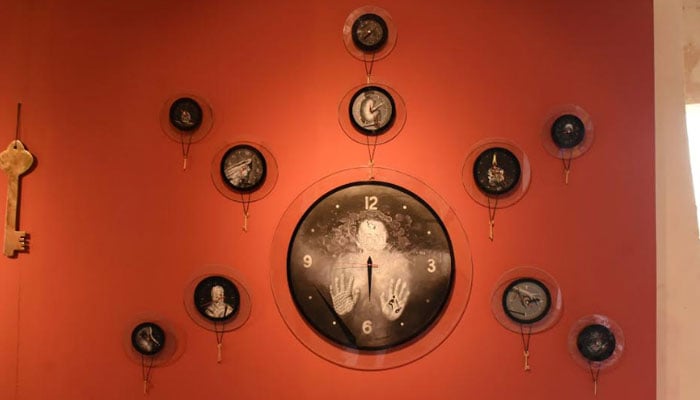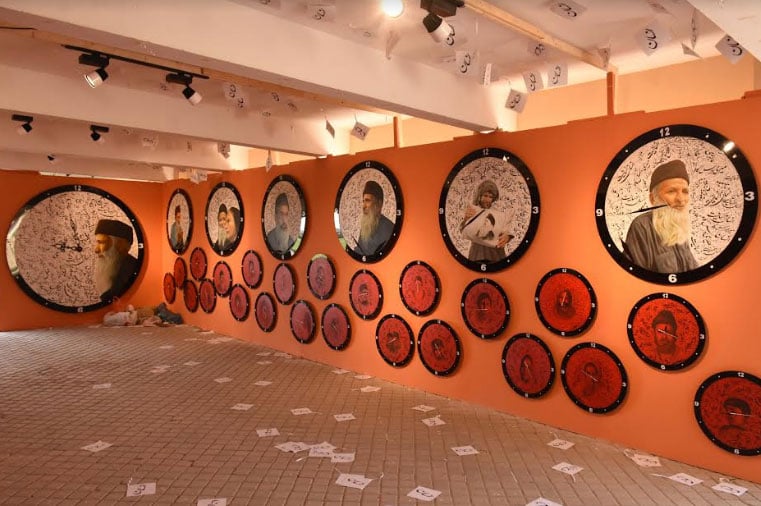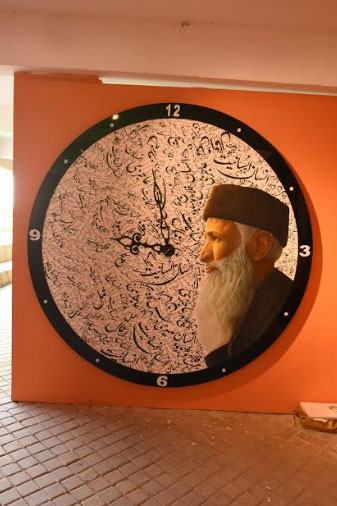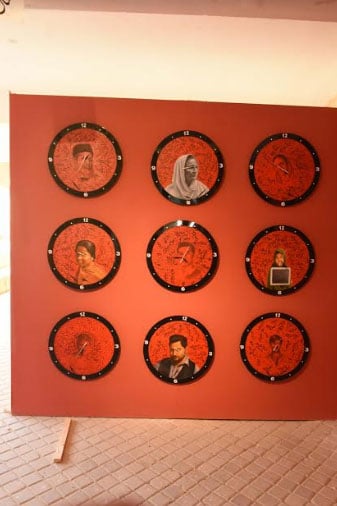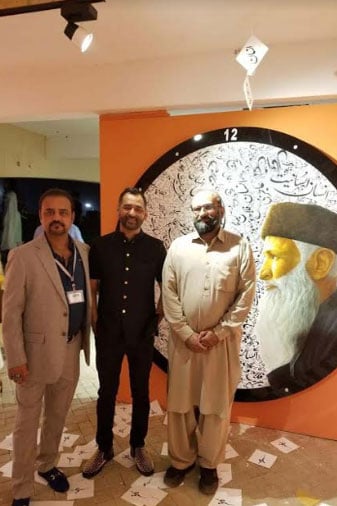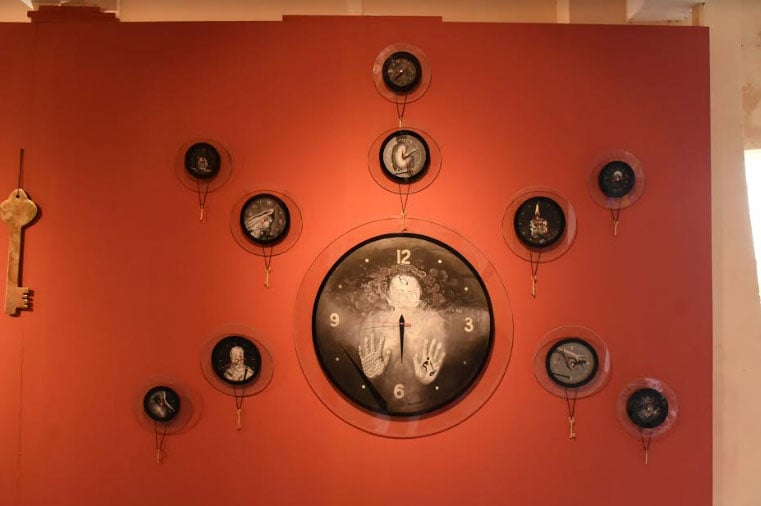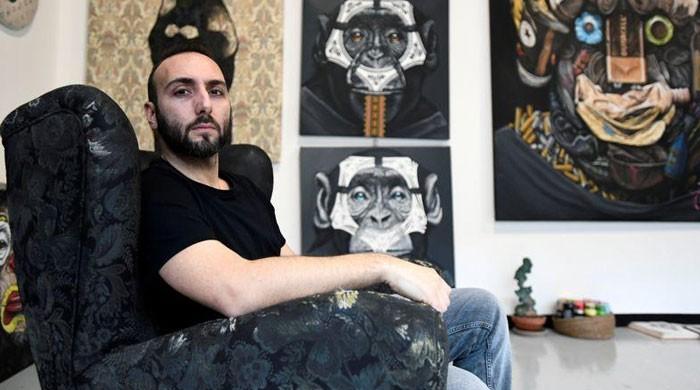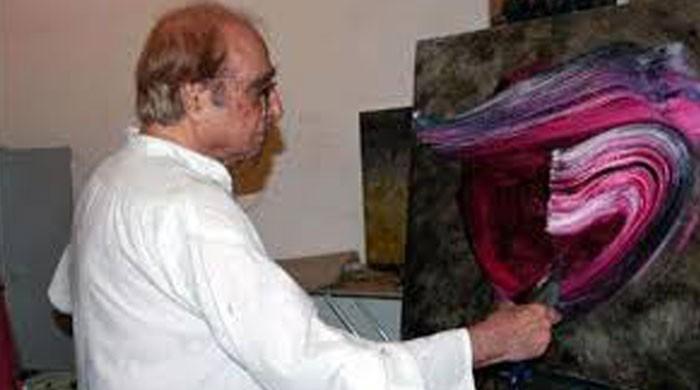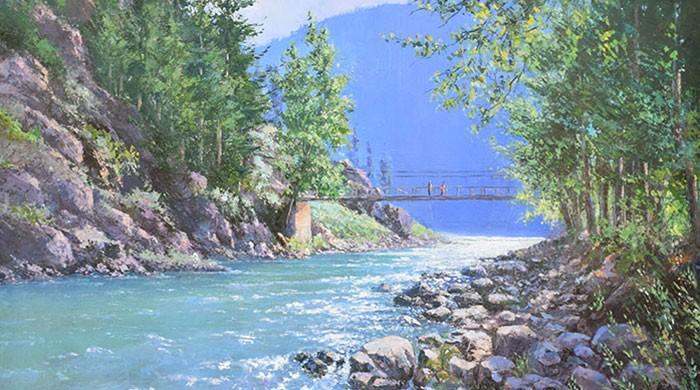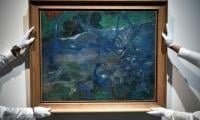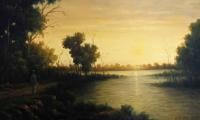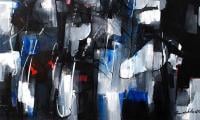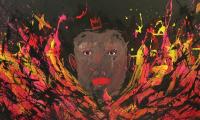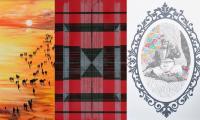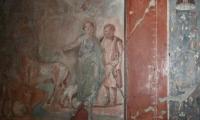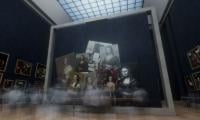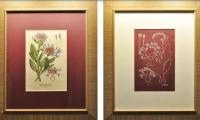‘Being Edhi’ – means to serve humanity
The second Karachi Biennale included renowned artist Shahid Rassam’s series of artworks titled Insan Ya Kafir? in which ‘Being Edhi’ and Kafir series were displayed for art lovers.
Nowadays art enthusiasts are enjoying the much-anticipated second Karachi Biennale that began on October 26 and will continue till November 26 for citizens to witness various forms of art by local and international artists.
Curated by Muhammad Zeeshan, the second Karachi Biennale included renowned artist Shahid Rassam’s series of artworks titled Insan Ya Kafir? in which ‘Being Edhi’ and Kafir series were displayed for art lovers.
‘Being Edhi’ series is not only a series of paintings sculptures, or instalation but also a different kind of tribute to an unmatchable human being and the global icon of our time – Abdul Sattar Edhi.
Explaining his artwork, Shahid Rassam said, “This series is a tribute to Edhi sahib who worked his whole life to serve humanity and he used to say that ‘no religion is higher than humanity.’
While elaborating further, Rassam said, “I am creating ticking clocks depicting Edhi sahib’s angelic soul on my canvas, portraying the children who are considered illegitimate, were thrown or left in ‘Edhi’s jhoola.’ He is the one only man who not only gave shelter, food, education but gave them the name ‘Edhi’.
“I am also going to make a different sort of documentary – a poetic tribute to Edhi sahab by our all legendary writers and poets, a reflection of his life, work and the meaning and inimitable legacy.”
Faisal Edhi, son of Abdul Sattar Edhi and Chairman of Edhi Foundation said, “How Edhi sahib’s message was conveyed by Shahid Rassam through his work is really appreciable and I thank him whole heartedly.”
Talking about Kafir series he explained that although the term Kafir refers to an infidel person, Rassam narrates various connotations adopted for the subjugation of the weak and the voiceless. Here word Kafir means refusal to face unpleasant facts and deny the reality while word Kafar means gorgeous. Hence denial can be of anything such as rights or privileges.
For more than two hundred years different poets of the sub-continent used these two words in their poetry from Mir, Ghalib, Josh, Madni, Faiz, Faraz and many more.
Rassam, inspired by the great poets, especially Ghalib, portrayed the vivid dreams of humanity. What Ghalib has said 200 in his poetry was portrayed by Rassam through his paintings and installations.
Deploying symbolism generously, Rassam in his seasoned genus of surrealism has effectively demonstrated the woes of the oppressed who are constantly intimidated and beat down by the self-appointed guardians of faith, state, and the value system.
He has also painted paintings titled Kafir Gharyaan. While interpreting his work, Rassam says, “I will not explain what I have painted but the nude imagery is also a reflection of how we were sent into this world. I will quote Ghalib:
“Avert your gaze, if you cannot behold
Cover your eyes if you like, I am the naked truth”
Khalil Chisti, Rashid Rana, Imran Qureshi and many local and international artists and art enthusiasts visited the Biennale and appreciated his artwork.
An artist called Suzanne artist from Switzerland said, “Those nations are alive who are able to bring to life their heroes through art.”
Shahid Rassam is a celebrated contemporary Pakistani-Canadian painter and sculptor who was born in Hyderabad in 1971. He was brought up among great writers and poets. His name Rassam (meaning, the artist) was given to him by the legendary poet Jaun Elia.
The artist received his primary and secondary education from the Government School in Korangi, Karachi. Rassam has a post-graduate degree in Geology and one in Urdu Literature from University of Karachi. Known to be passionate about Philosophy, History and English Literature he considers himself a devoted student and an avid bibliophile. British Council awarded a scholarship to the artist for Central Saint Martin College of Art, London in 1999. He dabbles in writing and is a compassionate human rights activist and educationist. Since 2016 he has been the Principal of the Arts Council Institute of Arts and Craft, Pakistan. Having spent considerable years in Dubai, London and Toronto the artist currently resides in Karachi, Pakistan.
-
Rare Gauguin fetches 9.5 mn euros at Paris auction
-
Vibrant compositions
-
Artist Mashkoor Raza's bold and soft compositions
-
Sanki King brings a burst of energy in graffiti
-
Remembering the forgotten
-
New technique reveals lost splendours of Herculaneum art
-
Louvre offers virtual ´tete-a-tete´ with the Mona Lisa
-
Traditional 'unnatural selection'
